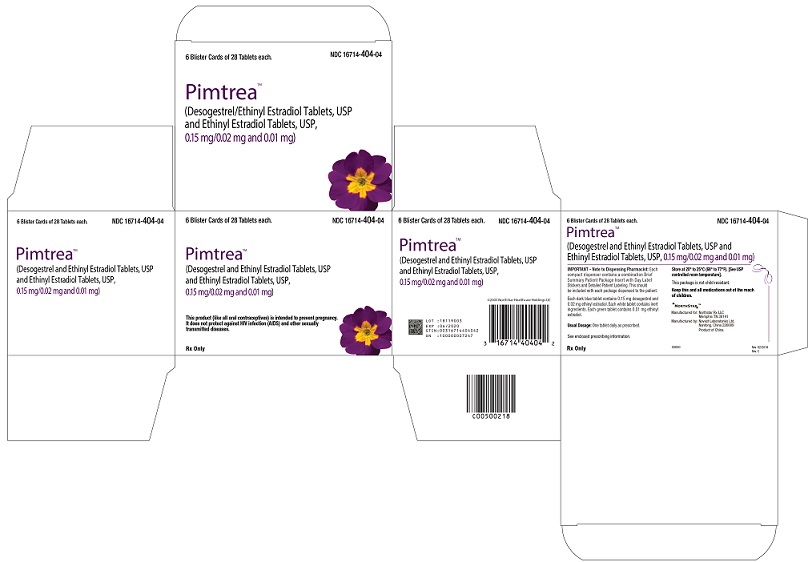Pimtrea | Desogestrel/ethinyl Estradiol And Ethinyl Estradiol Kit while Breastfeeding

What is Pimtrea | Desogestrel/ethinyl Estradiol And Ethinyl Estradiol Kit used for?
Can I continue breastfeeding if I am using Pimtrea | Desogestrel/ethinyl Estradiol And Ethinyl Estradiol Kit? How long does it stays in breast milk?

Pimtrea | Desogestrel/ethinyl Estradiol And Ethinyl Estradiol Kit Breastfeeding Analsys
Desogestrel while Breastfeeding
SafeCAS Number: 54024-22-5
Desogestrel (Progestogen-only contraceptive pill) that does not alter quality or composition of breast milk. Excretion into breast milk is non-significant, with no harmful effects on breastfed infants from treated mother reported. Within the first 6 weeks after birth, non-hormonal contraceptive methods are preferred.
Ethinyl estradiol while Breastfeeding
Low RiskCAS Number: 57-63-6
Synthetic estrogen that has a similar action as estradiol. Used in combination with progestogens for contraception. Ethinylestradiol is excreted in small or no amount into breast milk.There is evidence (albeit inconsistent) that estrogen-containing pills may decrease milk production, especially during the first few weeks postpartum with a daily dose above 30 micrograms of ethinyl estradiol.It may reduce the protein content of the milk.No problems have been observed in infants whose mothers were treated, except some cases of transient gynecomastia in infants whose mothers were receiving a higher dose than usual. During lactation progestin-only drugs are preferred or in combination with estrogen for birth control, but whatever, the ones with the lower doses of estrogen should be used.For the first 6 weeks postpartum, non-hormonal methods are of choise.
Ethinyl estradiol while Breastfeeding
Low RiskCAS Number: 57-63-6
Synthetic estrogen that has a similar action as estradiol. Used in combination with progestogens for contraception. Ethinylestradiol is excreted in small or no amount into breast milk.There is evidence (albeit inconsistent) that estrogen-containing pills may decrease milk production, especially during the first few weeks postpartum with a daily dose above 30 micrograms of ethinyl estradiol.It may reduce the protein content of the milk.No problems have been observed in infants whose mothers were treated, except some cases of transient gynecomastia in infants whose mothers were receiving a higher dose than usual. During lactation progestin-only drugs are preferred or in combination with estrogen for birth control, but whatever, the ones with the lower doses of estrogen should be used.For the first 6 weeks postpartum, non-hormonal methods are of choise.
Pimtrea | Desogestrel/ethinyl Estradiol And Ethinyl Estradiol Kit Breastfeeding Analsys - 2
Desogestrel while Breastfeeding
CAS Number: 54024-22-5
Desogestrel is only available in the United States in combination oral contraceptive products containing 150 mcg of desogestrel and 30 mcg of ethinyl estradiol. Based on the available evidence, expert opinion holds that nonhormonal methods are preferred during breastfeeding and progestin-only contraceptive are preferred over combined oral contraceptives in breastfeeding women, especially during the first 4 weeks postpartum. For further information, consult the record entitled, "Contraceptives, Oral, Combined."
Ethinyl estradiol while Breastfeeding
CAS Number: 57-63-6
This record contains information specific to ethinyl estradiol used alone. Users with an interest in an oral contraceptive should consult the record entitled, "Contraceptives, Oral, Combined."There is little information available on the use of ethinyl estradiol alone during breastfeeding. Levels in milk appear to be low. Based on studies on oral contraceptives that contain ethinyl estradiol, immediate side effects such as breast enlargement appear to occur rarely. It seems likely that doses of 30 mcg daily or greater can suppress lactation. The magnitude of the effect on lactation likely depends on the dose and the time of introduction postpartum, but data are not adequate to accurately define these doses and times.
Ethinyl estradiol while Breastfeeding
CAS Number: 57-63-6
This record contains information specific to ethinyl estradiol used alone. Users with an interest in an oral contraceptive should consult the record entitled, "Contraceptives, Oral, Combined."There is little information available on the use of ethinyl estradiol alone during breastfeeding. Levels in milk appear to be low. Based on studies on oral contraceptives that contain ethinyl estradiol, immediate side effects such as breast enlargement appear to occur rarely. It seems likely that doses of 30 mcg daily or greater can suppress lactation. The magnitude of the effect on lactation likely depends on the dose and the time of introduction postpartum, but data are not adequate to accurately define these doses and times.
I already used Pimtrea | Desogestrel/ethinyl Estradiol And Ethinyl Estradiol Kit and meanwhile I breastfed my baby should I be concerned?
Pimtrea | Desogestrel/ethinyl Estradiol And Ethinyl Estradiol Kit is in the category of low risk, if you have already used it then its not a big deal if health and behavior of baby is good. However your health care provider shall be aware of the fact that you have used Pimtrea | Desogestrel/ethinyl Estradiol And Ethinyl Estradiol Kit so you should inform him based on your convenience.
My doctor has prescribed me Pimtrea | Desogestrel/ethinyl Estradiol And Ethinyl Estradiol Kit, what should I do?
Pimtrea | Desogestrel/ethinyl Estradiol And Ethinyl Estradiol Kit comes in category of low risk and if your doctor is aware that you are breastfeeding it should be ok to use
If I am using Pimtrea | Desogestrel/ethinyl Estradiol And Ethinyl Estradiol Kit, will my baby need extra monitoring?
Not much monitoring required while using Pimtrea | Desogestrel/ethinyl Estradiol And Ethinyl Estradiol Kit
Who can I talk to if I have questions about usage of Pimtrea | Desogestrel/ethinyl Estradiol And Ethinyl Estradiol Kit in breastfeeding?
US
National Womens Health and Breastfeeding Helpline: 800-994-9662 (TDD 888-220-5446) 9 a.m. and 6 p.m. ET, Monday through Friday
UK
National Breastfeeding Helpline: 0300-100-0212 9.30am to 9.30pm, daily
Association of Breastfeeding Mothers: 0300-330-5453
La Leche League: 0345-120-2918
The Breastfeeding Network supporter line in Bengali and Sylheti: 0300-456-2421
National Childbirth Trust (NCT): 0300-330-0700
Australia
National Breastfeeding Helpline: 1800-686-268 24 hours a day, 7 days a week
Canada
Telehealth Ontario for breastfeeding: 1-866-797-0000 24 hours a day, 7 days a week
